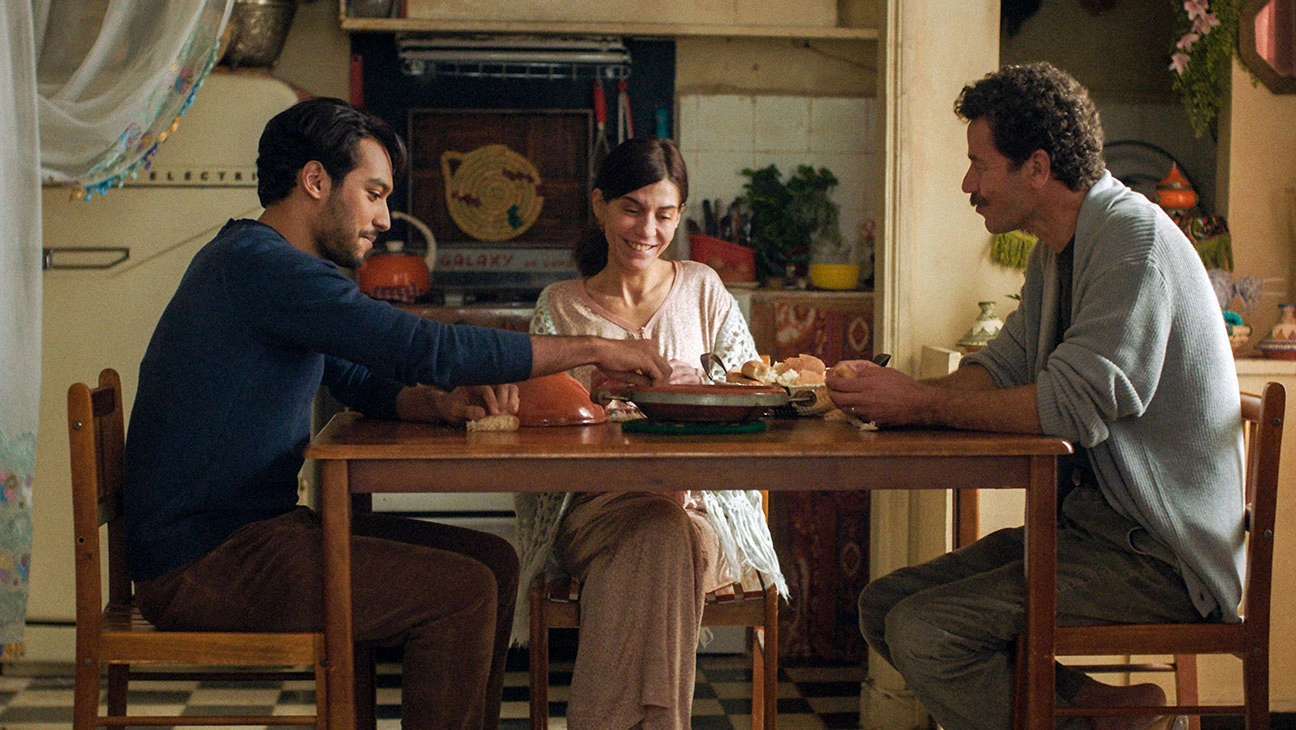Film Review: The Blue Caftan (2023)

Despite its reserved presentation, much of Maryam Touzani’s The Blue Caftan seethes with a fiery passion and bitter resentment that always seems on the verge of boiling over into grand outbursts of angry confrontations and guilt-ridden confessions. That it never quite does is a testament to Touzani’s restraint as a filmmaker, especially considering each of her three main characters – Halim (Saleh Bakri), a master tailor who specializes in traditional Moroccan caftans; his no-nonsense but loving wife Mina (Lubna Azabal); and Youssef (Ayoub Missioui), the young apprentice they hire to work in their failing shop – hold onto and even revel in variations of these damaging emotions throughout the film. They aren’t mean-spirited people, mind you, but they are confused and scared about how to navigate a rapidly changing world they aren’t quite prepared for. With a keen eye, Touzani walks us through a small but poignant snapshot of their lives, all the way up to the bittersweet end for one of them.
Its story may be small-scale, but The Blue Caftan manages to explore some big, seemingly disparate ideas within its compact frame. On one hand, it’s about traditions dying out or becoming obsolete, as the shop Halim and Mina run has been short on customers lately. At one point, Halim remarks to Youssef that there are no masters of his trade left, and with no one to teach the old techniques, artisan-made traditional ceremonial caftans will give way to cheaper store-bought alternatives. Although their shop can’t afford to be picky about who they do and don’t accept orders from, Mina nonetheless barks at customers for their lack of understanding about Halim’s art. Both she and Halim refuse to compromise quality, but their approaches to dealing with it are almost comically different.
On the other hand, The Blue Caftan is about the small acts of defiance necessary to remain yourself and heal your wounds in a rigid and unaccepting society. Early in the film, when we follow Halim into a bathhouse, it becomes clear that he is a gay man in a country in which it’s illegal to be so. This risky act forces us to wonder whether or not Mina is aware of Halim’s sexuality and calls into question if Youssef was hired for more than just his willingness to learn an artist’s trade. This naturally brings tension to the story, but not in the way we’re used to seeing it. How Touzani deals with the aftermath and resolution of this pressure is another jab at traditional values and the true nature of love.
But it’s the film’s final moments that bring perhaps the biggest defiance of all. I’ll leave it for you to see for yourself, but again, in the grand scheme of the world, Halim’s actions aren’t earth-shattering, but to him they are monumental in what they represent. It’s a triumphant and heartfelt scene, made more so by great performances and the beautiful craftsmanship that gives the film its name.

